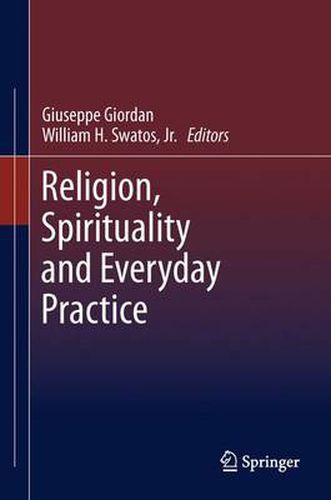Readings Newsletter
Become a Readings Member to make your shopping experience even easier.
Sign in or sign up for free!
You’re not far away from qualifying for FREE standard shipping within Australia
You’ve qualified for FREE standard shipping within Australia
The cart is loading…






This title is printed to order. This book may have been self-published. If so, we cannot guarantee the quality of the content. In the main most books will have gone through the editing process however some may not. We therefore suggest that you be aware of this before ordering this book. If in doubt check either the author or publisher’s details as we are unable to accept any returns unless they are faulty. Please contact us if you have any questions.
The current generation of young adults, at least in the Western world, has shown a marked tendency toward a preference for describing themselves as spiritual as contrasted to religious. This book seeks to examine the possible meanings and consequences associated with this contrast in terms of the similarities and differences that affect those who use these terms with respect to the everyday practices that they themselves employ or believe should follow from being self-defined as religious or spiritual - or not. The several chapters in this volume take up the religious-spiritual contrast specifically through investigations into practice: In what ways do people who claim to be religious or spiritual define these self-images as manifest in their own lives? How on a daily basis does a person who considers himself or herself religious or spiritual live out that self-image in specific ways that she or he can describe to others, even if not share with others? Are there ways that being spiritual can involve religion or ways that being religious can involve spirituality, and if so, how do these differ from concepts in prior eras (e.g., Ignatian spirituality, Orthodox spirituality, Anglican spirituality, etc.)? We also explore if there are institutions of spiritual practice to which those who term themselves spiritual turn, or if the difference implied by these terms may instead be between institutionalized and de-institutionalized expressions of practice, including but not limited to self-spiritualities.
$9.00 standard shipping within Australia
FREE standard shipping within Australia for orders over $100.00
Express & International shipping calculated at checkout
Stock availability can be subject to change without notice. We recommend calling the shop or contacting our online team to check availability of low stock items. Please see our Shopping Online page for more details.
This title is printed to order. This book may have been self-published. If so, we cannot guarantee the quality of the content. In the main most books will have gone through the editing process however some may not. We therefore suggest that you be aware of this before ordering this book. If in doubt check either the author or publisher’s details as we are unable to accept any returns unless they are faulty. Please contact us if you have any questions.
The current generation of young adults, at least in the Western world, has shown a marked tendency toward a preference for describing themselves as spiritual as contrasted to religious. This book seeks to examine the possible meanings and consequences associated with this contrast in terms of the similarities and differences that affect those who use these terms with respect to the everyday practices that they themselves employ or believe should follow from being self-defined as religious or spiritual - or not. The several chapters in this volume take up the religious-spiritual contrast specifically through investigations into practice: In what ways do people who claim to be religious or spiritual define these self-images as manifest in their own lives? How on a daily basis does a person who considers himself or herself religious or spiritual live out that self-image in specific ways that she or he can describe to others, even if not share with others? Are there ways that being spiritual can involve religion or ways that being religious can involve spirituality, and if so, how do these differ from concepts in prior eras (e.g., Ignatian spirituality, Orthodox spirituality, Anglican spirituality, etc.)? We also explore if there are institutions of spiritual practice to which those who term themselves spiritual turn, or if the difference implied by these terms may instead be between institutionalized and de-institutionalized expressions of practice, including but not limited to self-spiritualities.